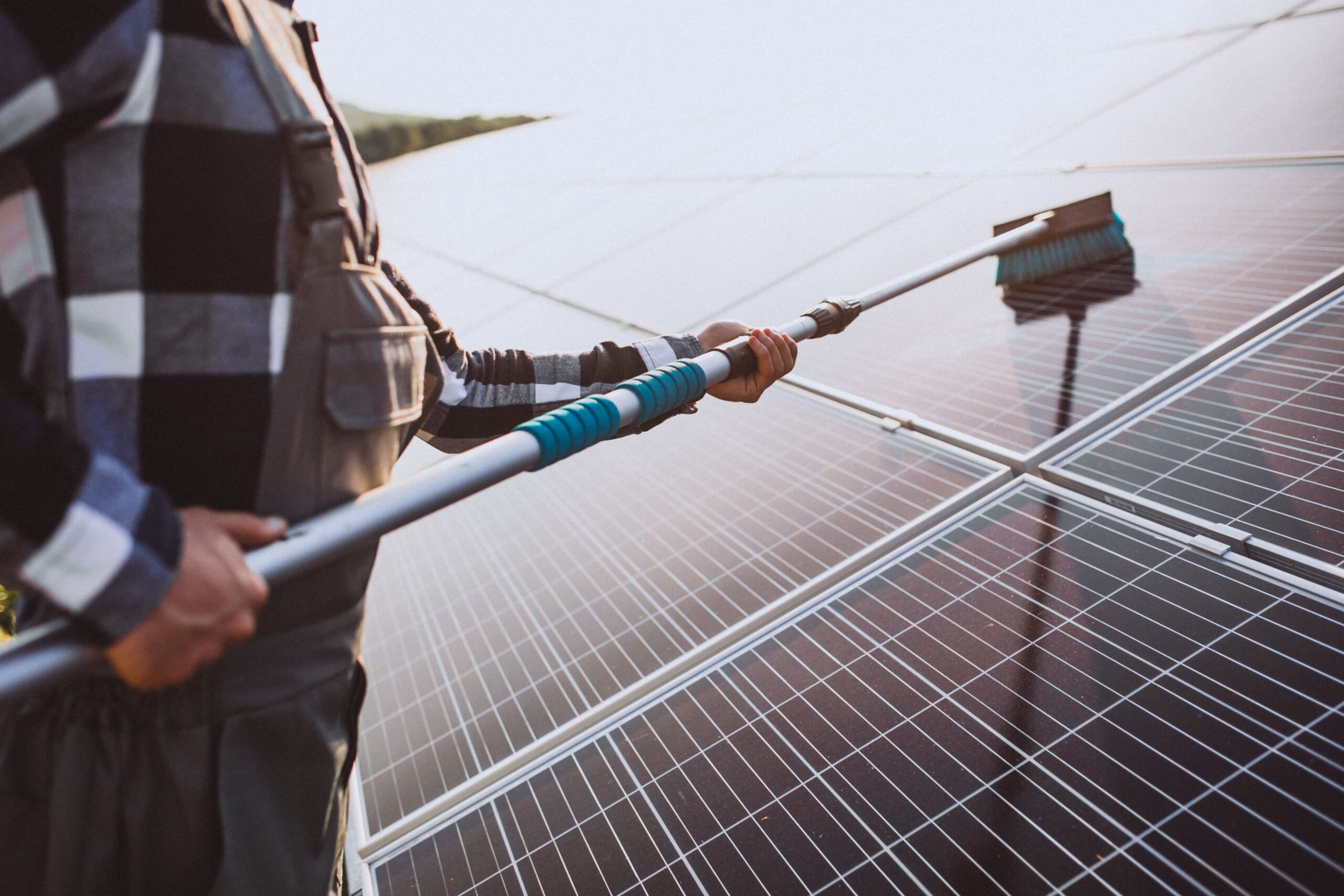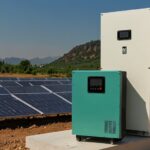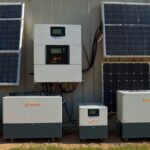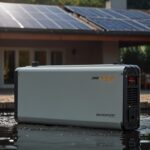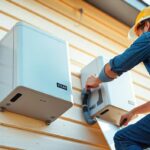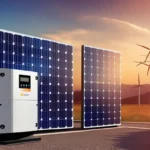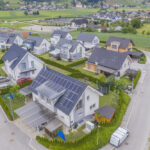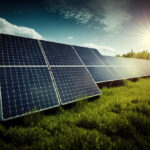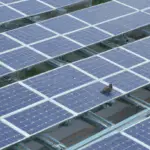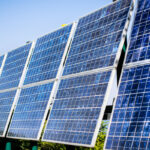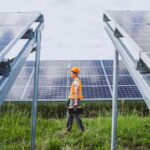Solar panels are an excellent investment for any homeowner or business looking to reduce their carbon footprint and save on energy costs. However, like any other equipment, solar panels require regular maintenance to ensure they operate at their optimal efficiency. One crucial aspect of solar panel maintenance is cleaning. In this blog post, we will guide you through the process of determining whether your solar panels need cleaning, importance of solar panel cleaning provide, step-by-step instructions on how to clean them, and discuss important factors to consider during the cleaning process. By following these guidelines, you can keep your solar panels in top shape and maximize their energy production.
How To Determine if Solar Panel Cleaning is Required?
Regular inspection of your solar panels is important to identify whether they require cleaning. Here are a few signs that indicate it may be time to give your solar panels a thorough cleaning:
Visual Inspection of Solar Panels
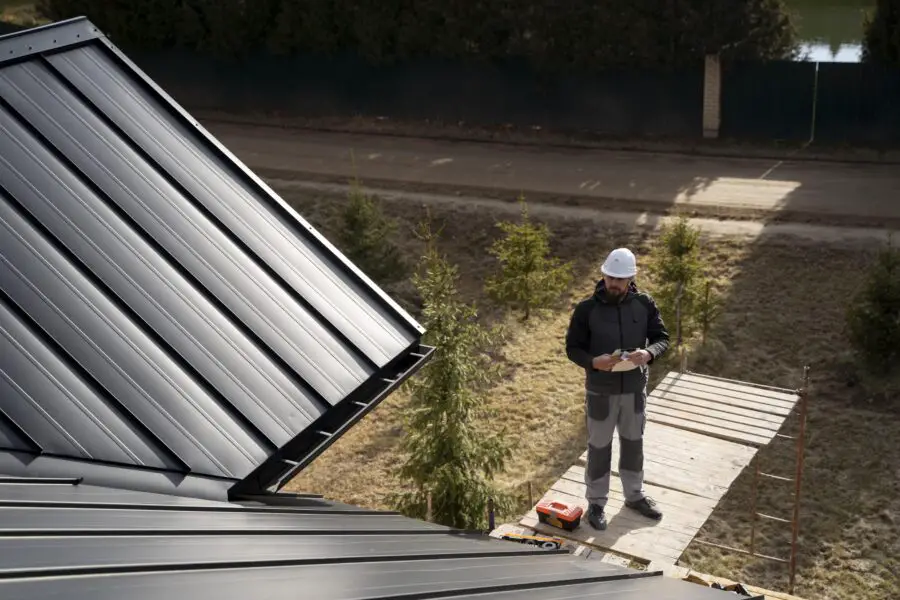
Begin by visually examining your solar panels. Look for any visible dirt, debris, or staining on the surface. Dust, leaves, bird droppings, and pollen can accumulate on the panels over time and obstruct sunlight absorption. If you notice a significant buildup of dirt or grime, it’s a good indication that cleaning is necessary.
Reduced Energy Production
Monitor your solar panel’s energy production over a period of time. If you observe a sudden decrease in energy output compared to previous months, it could be an indication that dirt or debris is obstructing the sunlight from reaching the solar cells. In such cases, cleaning the panels can help restore their efficiency.
Climate and Environmental Factors
Your location and the prevailing weather conditions can impact how quickly dirt accumulates on your solar panels. If you live in an area with high levels of dust, pollen, or air pollution, your solar panels may require more frequent cleaning. Similarly, if your region experiences heavy rainfall, it can help wash away some of the dirt, reducing the need for regular cleaning.
Importance of Solar Panel Cleaning
Regularly cleaning your solar panels is important for maximizing their energy production, improving their efficiency, and prolonging their lifespan. By removing dirt, dust, and debris, you can ensure that your solar panels operate at their best, protecting your investment in clean and renewable energy.
- Maximizing Energy Production: Dirt, dust, and debris that accumulate on the surface of solar panels act as a barrier, preventing sunlight from reaching the solar cells. This reduces the amount of energy the panels can generate. Regularly cleaning your solar panels allows them to absorb the maximum amount of sunlight, optimizing electricity production and increasing your energy output.
- Enhancing Efficiency: Studies have revealed that dirty solar panels can experience efficiency reductions of up to 25%. When layers of grime build up on the panels, they become less effective at converting sunlight into usable electricity. By cleaning your solar panels every few months, you ensure that they operate at their highest efficiency, allowing you to get the most out of your solar system.
- Preventing Shading Issues: Obstructions such as leaves, branches, or other debris on the surface of solar panels can cast shadows, creating what are known as “hot spots.” These shadows hinder the performance of the shaded solar cells, leading to reduced energy production and potential damage. Regularly cleaning your solar panels eliminates any obstructions, ensuring that they receive uniform sunlight and preventing the formation of hot spots.
- Extending Lifespan: Dust, dirt, and other particles that accumulate on solar panels can corrode their surfaces over time. This corrosion can lead to long-term damage and reduce the overall lifespan of your panels. By cleaning your solar panels regularly, you protect them from deterioration, extending their lifespan and ensuring that they continue to generate clean energy effectively for many years.
- Promoting Environmental Sustainability: Solar energy is a clean and renewable source of power. By regularly cleaning your solar panels, you contribute to the sustainability of your energy production. Clean panels maximize energy output, reducing the reliance on non-renewable energy sources and lowering greenhouse gas emissions. By taking care of your solar panels, you actively participate in the promotion of a greener and more sustainable future.
- Optimizing Financial Returns: Solar panel systems are a significant investment, and their financial returns depend on their energy production efficiency. Dirty panels can experience efficiency losses of up to 25%, resulting in decreased energy output and reduced financial benefits. By regularly cleaning your solar panels, you can maintain their efficiency levels and ensure that you are getting the maximum return on your investment.
How To Clean Solar Panels for Higher Production?
Cleaning your solar panels doesn’t have to be a complicated process. Follow these simple steps to ensure a thorough and safe cleaning:
Safety First
Before you start cleaning, ensure your safety by turning off the solar panel system and disconnecting it from the power source. It’s important to avoid any electrical accidents during the cleaning process.
Gather Cleaning Supplies
Collect all the necessary solar cleaning equipment, such as a soft brush with a long handle, a bucket of warm water, a mild detergent or soap, and a squeegee or microfiber cloth. Avoid using abrasive materials or harsh chemicals that could damage the panels.
Gently Remove Loose Debris
Use the soft brush to gently remove any loose debris or dirt from the solar panel surface. Be cautious not to scratch or apply excessive pressure that could cause damage.
Wash Panels with Soapy Water
Dip the solar panel cleaning brush or a clean sponge into the bucket of warm water mixed with a mild detergent or soap. Scrub the surface of each solar panel gently to remove any stubborn dirt or grime. Ensure that the detergent or soap used is compatible with the manufacturer’s guidelines to avoid any damage.
Rinse with Clean Water
After scrubbing, thoroughly rinse the solar panels with clean water to remove any soap residue. A hose or a gentle spray from a watering can can be used for this purpose.
Dry the Panels
Once rinsed, use a squeegee or a soft, lint-free microfiber cloth to remove excess water from the solar panel surface. This step helps prevent water spots and ensures the panels dry evenly.
Note: You can also hire a professional solar cleaner for the job, however, you need to be mindful of the cost associated. Using our detailed guide on “Solar Panel cleaning cost in 2023“, you can surely make a sound decision.
Things to Consider During Solar Panel Cleaning?
While cleaning your solar panels, keep the following considerations in mind:
Time and Frequency
Determine the best time to clean your solar panels based on your location and prevailing weather conditions. Cleaning them early in the morning or late in the evening when the panels are cool can help prevent water from evaporating quickly and leaving streaks.
Regular Maintenance
Cleaning your solar panels is just one aspect of regular maintenance. Keep an eye on their performance, inspect for any signs of damage, and address any issues promptly to ensure optimal efficiency.
Conclusion
It’s important to clean solar panels to maintain their performance and maximize energy production. By visually inspecting your panels, monitoring energy output, and considering environmental factors, you can determine when it’s time to clean them. Following the step-by-step cleaning process outlined in this blog will help you safely and effectively remove dirt and debris from your solar panels. Remember to prioritize safety, use the appropriate cleaning supplies, and consider the timing and frequency of cleaning. By taking these measures, you can ensure that your solar panels continue to operate at their best and contribute to a sustainable future.

